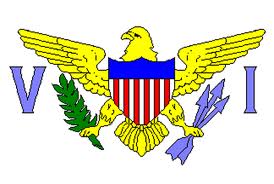St. Thomas, U.S. Virgin Islands Senator Myron D. Jackson encourages all throughout the territory to remember the sacrifices of the courageous many who led the fight for freedom in the Virgin Islands on the 165th anniversary of Emancipation Day. Falling on the day before Independence Day, he urges Virgin Islanders to take a moment to reflect on the events leading up to the historic occasion on July 3, 1848.
“We honor our ancestors who gave of their sweat, blood, tears, and lives for our Freedom. This event is one of the defining moments in the shared history of the Virgin Islands of the United States and Denmark,” Senator Jackson said.
On July 3, 1848, thousands of enslaved Africans led by charismatic leaders such as Moses “General Buddhoe” Gottlieb, an educated master sugar boiler from La Grange, and Admiral Martin King gathered outside the walls of Fort Frederik in Frederiksted, and demanded their freedom or promised to burn the town down.
“These two courageous men planned a strategy to organize their people to strike a blow to the oppressive system that kept them inferior and enslaved,” Senator Jackson said. “Over the course of several months plans were secretly put in place. The stage had been set.”
The mood was charged with the background of blowing conch shells, ringing church bells, and the casting of the whipping post into the sea. The Danish militia was grossly outnumbered. Then Governor General of the Danish West Indies, Peter von Scholten faced the angry crowd that afternoon and was forced to give in to the demands.
“From this day onward, all unfree in the Danish West Indies are today free,” von Scholten proclaimed.
One year prior to emancipation, on July 28, 1847, King Christian the VIII of Denmark issued a royal decree to abolish slavery in the Danish West Indies in 1848 for all newborns, but to delay full emancipation until 12 years later.
Many realized that they would not live to be free men and women. This was unacceptable and was the last straw for Africans in the colony,” Jackson said. “We must go back and reclaim our past so we can move forward; so we understand why and how we came to be who we are today.”




